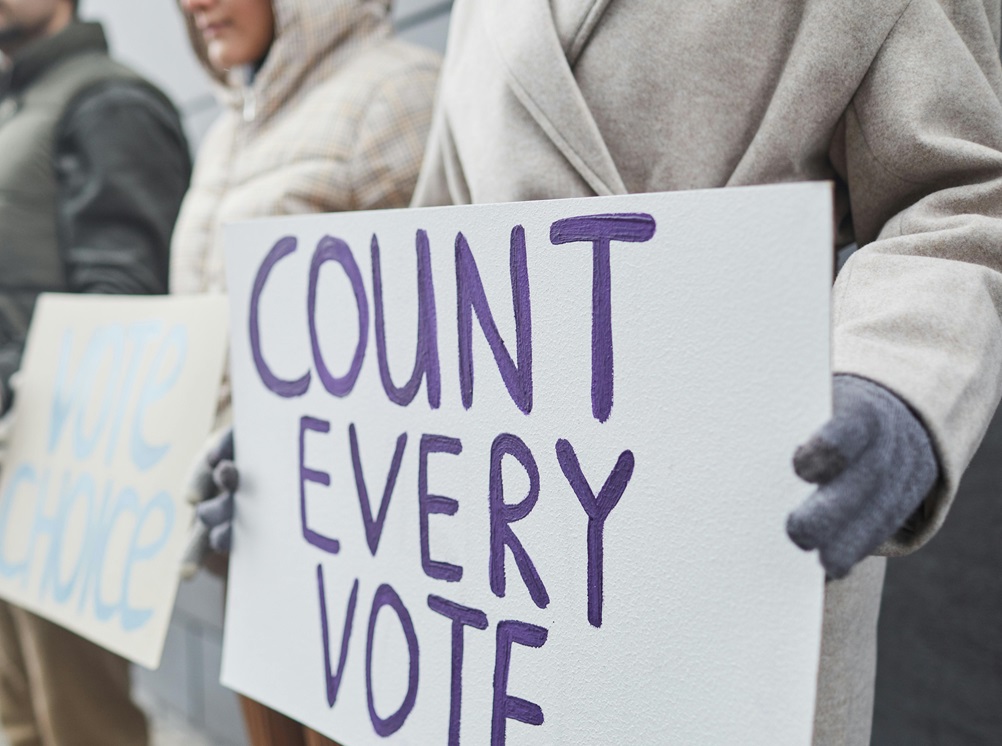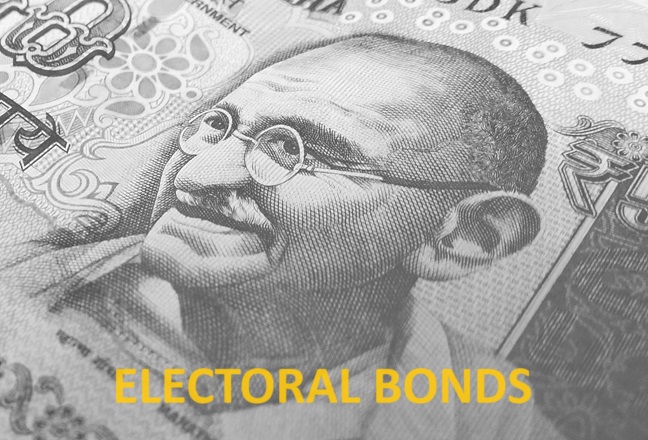ELECTORAL BONDS
An electoral bond is a promissory note issued by authorised branches of the State Bank of India to companies or individuals wishing to donate to registered political parties
Introduction
Electoral bonds have emerged as a controversial instrument in Indian politics, sparking debates on transparency, accountability, and the influence of money in elections. Introduced in 2018 by the Government of India, electoral bonds were touted as a means to cleanse political funding and promote transparency. However, their implementation has been met with scepticism and criticism from various quarters. This article aims to delve into the rationale behind the issuance of electoral bonds, analyse their beneficiaries in the years 2023 and 2024, and critically evaluate their impact on Indian democracy.
Background
The concept of electoral bonds was introduced as part of the Finance Act, 2017, with the objective of cleaning up political funding and reducing the influence of black money in elections. The primary idea was to provide a legitimate channel for individuals and corporations to donate funds to political parties while maintaining their anonymity. Under this scheme, individuals and entities can purchase electoral bonds from specified branches of the State Bank of India (SBI) and donate them to the political party of their choice. These bonds are then redeemed by the recipient parties through designated bank accounts. The electoral bonds did not require the revelation of the donor’s identity to anyone, including the Election Commission of India (ECI). The electoral bonds are available in the denomination of minimum INR 1000/- to as high as of INR 1 crore or more. An individual & industrial house can purchase any number of electoral bond, i.e. no cap on it.
Before this scheme launched by Government each and every political parties need to disclose the donations received more than INR 20,000.
Electoral bond scheme introduced via Finance Acts 2016 & 2017 which includes 4 acts i.e. Representation of People Act 1951, the companies Act2013, Income Tax Act1961, & the Foreign Contributions Regulation Act 2010.
Political parties who secured at least 1% of the votes polled in the recent Lok Sabha or State Assembly elections and registered under the representation of people Act can receive donations via electoral bond in the designated Bank account specified by the election commission within 15 days of the purchase of these bonds.
Recent Hype before 2024 Loksabha Election –

The recent ruling of Supreme Court and directive to State Bank of India that release all the details of the electoral bonds like donor name and beneficiary to Election commission, which is now available at its website. The apex court stated that Electoral Bond Scheme 2017 is unconstitutional and it violates voter’s right to get the information about the political funding, India’s voter have a right to know the transaction details done in lieu of electoral bonds from industrial houses to political parties, a transparency required in the system.
Rationale for Electoral Bonds
Proponents of electoral bonds argue that they serve several purposes. Firstly, they are seen as a way to enhance transparency by channelling political donations through the banking system, thereby creating a paper trail of transactions. Secondly, by allowing for anonymous donations, they purportedly protect donors from potential reprisals or victimization by opposing political parties. Additionally, supporters claim that electoral bonds facilitate the flow of legitimate funds into the political system, reducing the reliance of parties on illicit sources of funding such as cash donations.
Criticism and Concerns
Despite the intended benefits, electoral bonds have faced significant criticism from various quarters. One of the primary concerns is the lack of transparency inherent in the scheme. Since the identity of donors remains undisclosed, there are fears that the bonds could be used as a conduit for funnelling black money into politics, undermining the very goal of transparency. Moreover, critics argue that the anonymity provided by electoral bonds opens the door for quid pro quo arrangements between political parties and corporate donors, potentially leading to policy capture and favouritism.

Another major criticism pertains to the unequal playing field created by electoral bonds. While large corporations and wealthy individuals can afford to purchase these bonds in large quantities, smaller donors and ordinary citizens are effectively side-lined from the political funding process. This exacerbates existing inequalities in the political landscape, where parties with access to greater financial resources enjoy a disproportionate advantage over their competitors.
Furthermore, concerns have been raised regarding the lack of oversight and accountability mechanisms surrounding electoral bonds. Unlike traditional modes of political funding, such as cash donations, which are subject to scrutiny by the Election Commission of India (ECI), electoral bonds operate in a regulatory grey area. The opacity surrounding their functioning makes it difficult to ascertain the extent of their impact on electoral outcomes and the democratic process as a whole.
Beneficiaries of Electoral Bonds: 2023-2024
Despite the controversies surrounding electoral bonds, data from the State Bank of India (SBI) reveals the beneficiaries of these bonds in the years 2023 and 2024. The following is a list of political parties that received significant contributions through electoral bonds during this period:
Bharatiya Janata Party (BJP): The ruling party at the centre, the BJP, emerged as the primary beneficiary of electoral bonds, receiving substantial donations from corporate entities and wealthy individuals. The party’s strong electoral performance and pro-business stance have made it an attractive destination for political contributions.
Indian National Congress (INC): The principal opposition party in India, the INC, also received a significant share of electoral bonds during the specified period. Despite its declining electoral fortunes in recent years, the party continues to command support from certain sections of the business community and individual donors.
Regional Parties: Several regional parties across various states in India also benefited from electoral bonds during 2023-2024. These include parties such as the Trinamool Congress (TMC) in West Bengal, the Dravida Munnetra Kazhagam (DMK) in Tamil Nadu, and the Shiv Sena in Maharashtra, among others.
Other Political Entities: In addition to mainstream political parties, certain niche or ideologically driven organizations also received electoral bond donations. These include parties espousing regional or identity-based causes, as well as smaller parties with specific policy agendas.
Conclusion
Electoral bonds have emerged as a contentious issue in Indian politics, with proponents and critics presenting contrasting views on their efficacy and impact. While proponents argue that they promote transparency and streamline political funding, critics raise concerns about their potential for misuse, lack of accountability, and distortion of the democratic process. The beneficiaries of electoral bonds in the years 2023 and 2024 primarily include mainstream political parties, with the ruling BJP and the principal opposition INC receiving significant contributions. However, the full extent of electoral bonds’ influence on Indian democracy remains a subject of debate, highlighting the need for further scrutiny and reform in the realm of political finance regulation.
Disclaimer:
The views expressed in this article are solely those of the author and do not necessarily reflect the official policy or position of any organization or entity. The information provided is for educational and informational purposes only and should not be construed as legal or financial advice. Readers are encouraged to conduct their own research and consult relevant authorities for specific guidance.

